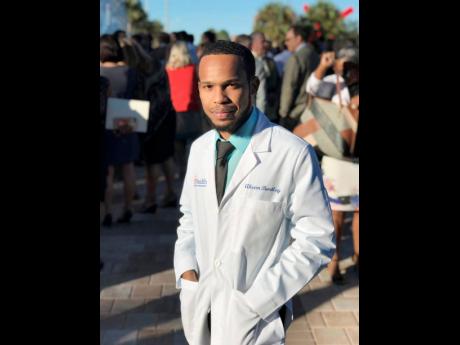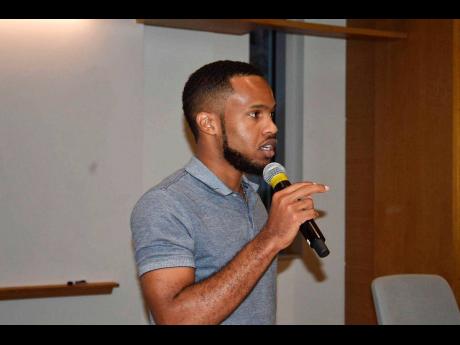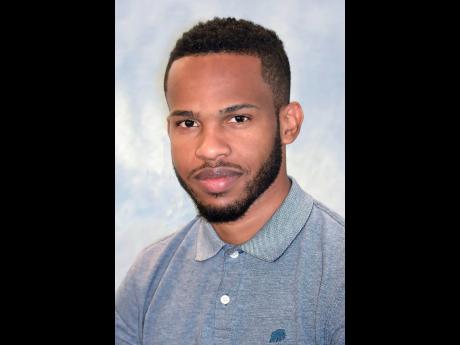J’can student making moves in medicine
At an early age Akeem Bartley decided that he was going to become a medical doctor. The ordeal he faced as a child when his mother got sick only pushed him more to achieve that goal.
While growing up in the small community of Race Course in Clarendon, he noticed that the only health facility in the area was a health centre, and the doctors would only come by every two weeks. Unfortunately, his mother got sick during the doctor's 'off' week. At this point, medicine started to mean something more than just getting a degree.
pressing towards his goal
After migrating to the United States in 2012, Bartley finished his last two years of high school and got a full scholarship to attend the University of Florida. He then applied for the Medical Honours Programme, which allowed him to complete his undergraduate degree a year early and start medical school. He is now in his second year at the University of Florida College of Medicine.
An ecstatic Bartley told THE STAR that he was very excited to be accepted into the programme. And even though the years have not been easy, he is pressing towards his goal.
He said that while in the United States, he realised that not many persons were represented in the medical field. That is why he began a mission last summer to expose students, especially those in the 11th and 12th grades, to various medical professions.
He said that by exposing these children, he has hopes that more persons will get the opportunity to work as medical practitioners.
"The idea is to recruit more minority in medicine through grassroot programmes like the Health Care Summer Institute, which I co-coordinated last summer. It focuses on increasing minority visibility," he said.
"While enrolled in the programme, they (the students) will also receive help with college admissions essays and application."
He continued: "Representation matters at all levels. Increasing diversity in medical education leads to more physicians who are capable of providing patient-focused, culturally competent care. Physicians who are under-represented minorities are also more likely to return to under-served communities, delivering care to the patients that need it the most."








































